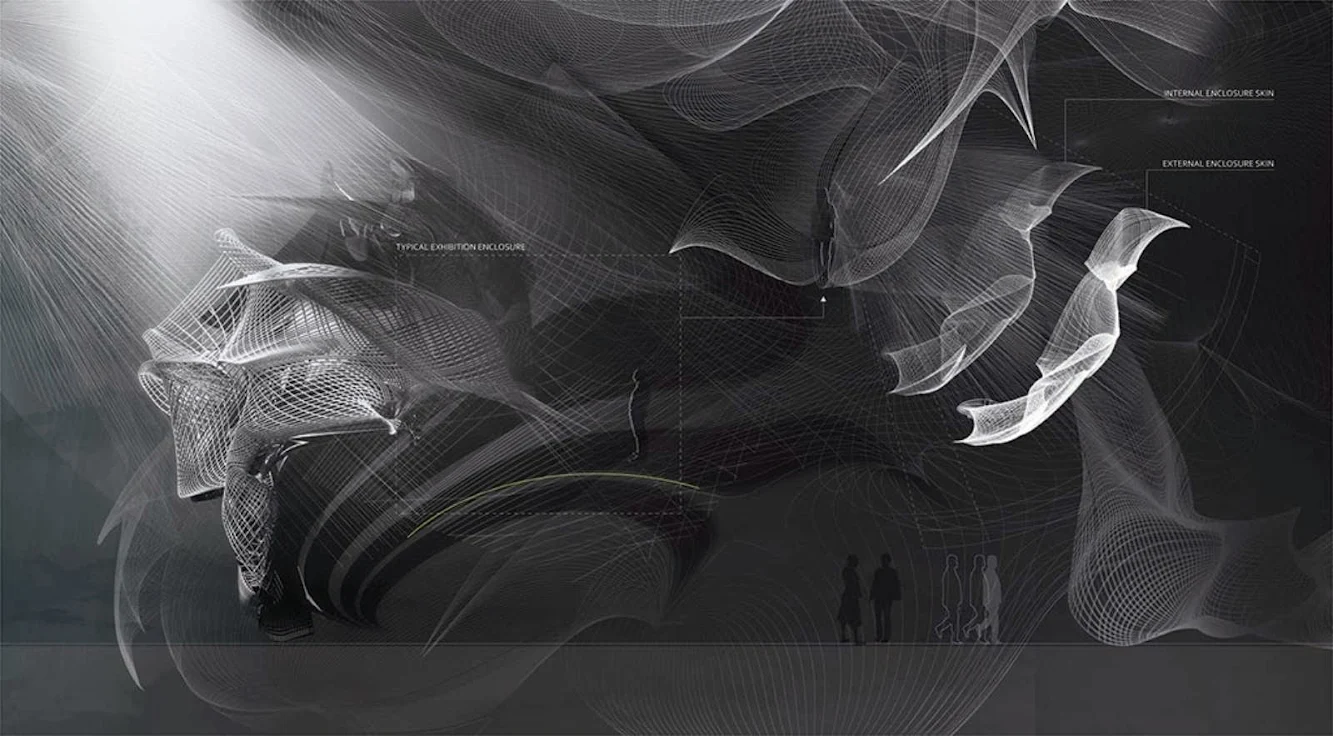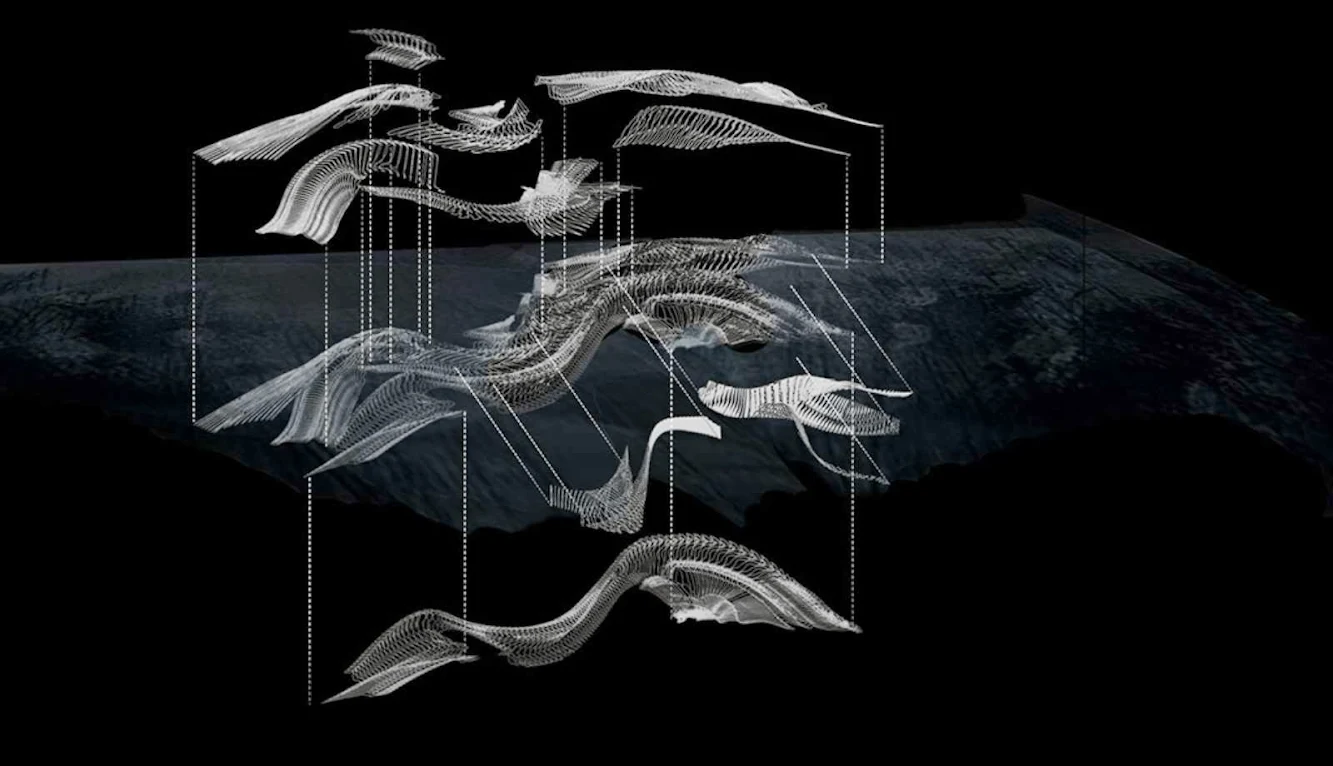
Designed in collaboration with Shuchi Agarwal the Synaesthetic Museum project seeks to find a harmony between the visual and aural perceptions in architecture.

Using light as the architectural generative tool in creating form, this project exemplifies the relationship between the actual form itself and the aural qualities it can create. Studying the play of light caustics and sound, the museum heightens ones awareness of the essential role the human senses play in the built environment.

This project speculates on sound generation through wind on a riverside. Located on the opposite side of the historical French-Canadian city of Quebec in Canada, across river St. Lawrence. A harmonic layer of string arrangement, designed through the synthesis of harmonic proportions, forms an Aeolian harp that uses wind energy to generate pleasant sound.

This project is an initial step towards interpreting the intelligent proportions of the harmonic instruments to design an architecture performance through sound into expressions of formal proportion in architecture. the spatial and functional implications of the Synaesthetic Museum become key requirements for it to function both as a museum and an Aeolian building.

Structured round several prototypes and investigations in harmonic proportions, the design explores various tectonic analysis related to both the architectural language, through caustics, and the inclusion of fully functional harmonic strings.

The goal of this project is to be able to translate and re-interpret a combination of sound and light through form; to better understand how to create atmosphere and compose a one unique performative experience.

Applying how light can evolve into inhabitable spaces, the museum attempts to redefine how people occupy the built environment also through sound and not only through the typical visual aspects, hence experiencing a homogeneous correlation between the volumetric qualities of both light and sound.

Operating as a sensorial extension of the city, the Synaesthetic Museum engages the users in an optical and harmonic experience. Like an Aeolian harp, the building is played by the wind, acoustically transforming the full character of the juxtaposed sound of the breaking frozen river in winter. A visual and aural understanding of two senses, and speculation on an imagined fully experiential space.
Location: Quebec City, Canada Design: Francois Mangion Collaboration: Shuchi Agarwal Research: Bartlett School of Architecture, Ucl, B-Pro Graduate Architectural Design Year: 2013 via architecturelab